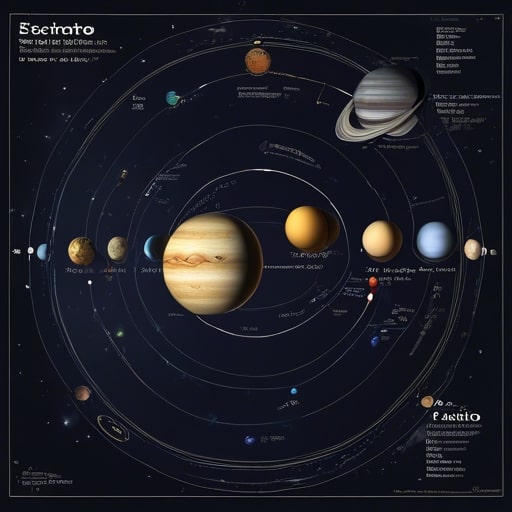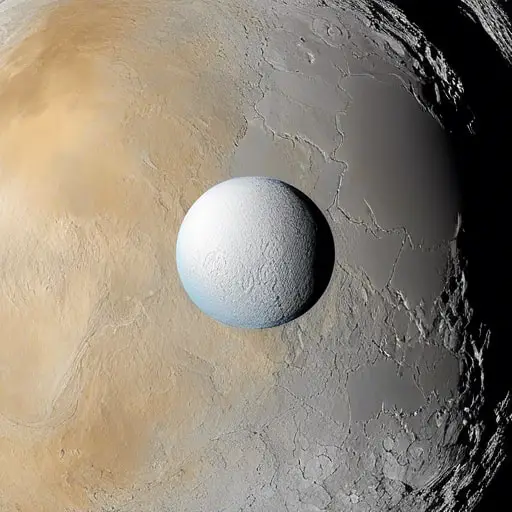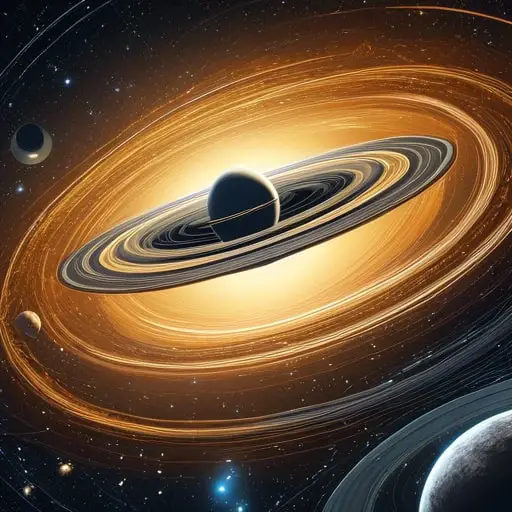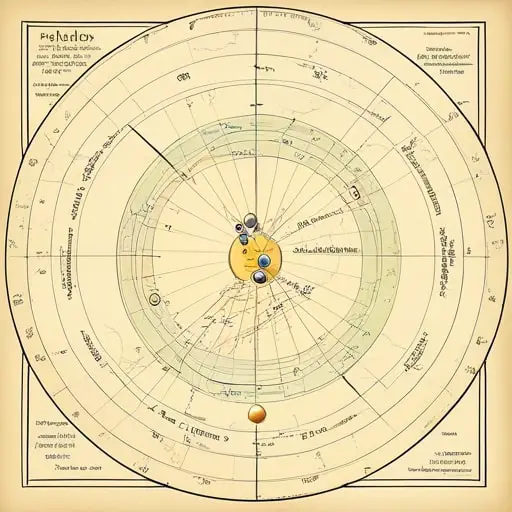Why Is Pluto Not a Planet?
Imagine you’re at a party, surrounded by a group of friends. As the conversation turns to the topic of planets, someone mentions Pluto. Suddenly, a heated debate erupts: is Pluto really a planet or not?
You listen intently, realizing that the controversy surrounding Pluto’s planetary status is not just a casual argument among friends. There are valid reasons why Pluto is not considered a planet, and understanding them requires a closer look at the criteria set by the International Astronomical Union (IAU).
So, why exactly is Pluto not a planet? Let’s explore the fascinating journey of Pluto’s reclassification, the scientific criteria involved, and the ongoing debate that continues to captivate the scientific community.
Key Takeaways
- Pluto was reclassified from a planet to a dwarf planet by the IAU in 2006.
- The reclassification was based on the criterion that Pluto failed to clear its neighboring region of other objects.
- The IAU’s decision aimed to establish a clear and consistent definition of a planet.
- The reclassification of Pluto sparked controversy and ongoing discussions among astronomers and the public.
The Reclassification of Pluto
The reclassification of Pluto from a planet to a dwarf planet by the International Astronomical Union (IAU) was the result of its failure to clear its neighboring region of other objects, as per the new criteria for defining a full-sized planet.
The IAU’s decision to reclassify Pluto was based on scientific evidence and a desire for a clear and consistent definition of a planet.
According to the IAU, a planet must meet three criteria: it must orbit the Sun, it must be spherical in shape, and it must have cleared its orbit of other debris. While Pluto meets the first two criteria, it fails to clear its neighboring region, leading to its reclassification as a dwarf planet.
This decision sparked controversy and ongoing discussions among astronomers and the public, highlighting the importance of scientific classification and the need for clear definitions in the field of astronomy.
Scientific Criteria for Defining a Planet
To define a planet scientifically, it must meet specific criteria based on its relationship to the Sun and its physical characteristics.
According to the International Astronomical Union (IAU), the three criteria for a full-sized planet are as follows:
- In orbit around the Sun: A planet must revolve around the Sun and not any other celestial body.
- Sufficient mass for hydrostatic equilibrium: This means that a planet must have enough mass to pull itself into a nearly round shape due to its own gravity.
- Clearing its orbit’s neighborhood of other objects: A planet must be the dominant gravitational force in its orbital zone and have cleared away any debris or smaller objects.
Pluto, however, failed to meet the third criterion and was reclassified as a dwarf planet in 2006. While it meets the first two criteria for a full-sized planet, it hasn’t cleared its neighboring region of other objects.
Pluto’s History as the Ninth Planet
Moving on to Pluto’s history as the ninth planet, let’s explore its discovery and subsequent reclassification as a dwarf planet by the International Astronomical Union (IAU) in 2006.
Pluto was discovered on February 18, 1930, by astronomer Clyde W. Tombaugh at the Lowell Observatory in Flagstaff, Arizona, as the ninth planet in the Solar System.
However, in 2006, the IAU redefined the criteria for a full-sized planet, and Pluto didn’t meet the new requirements. According to the IAU’s definition, a planet must orbit the Sun, have sufficient mass for hydrostatic equilibrium, and clear its orbit’s neighborhood.
Pluto failed to clear its orbit, leading to its reclassification as a dwarf planet. This decision sparked ongoing debates and discussions about the evolving nature of scientific knowledge and the cultural aspects of planetary classification.
The Controversy Surrounding the Reclassification
Pluto’s reclassification as a dwarf planet by the International Astronomical Union (IAU) in 2006 stirred controversy and sparked ongoing debates about the nature of planetary classification. The controversy surrounding Pluto’s reclassification can be attributed to the following reasons:
- IAU’s criteria: The IAU downgraded Pluto’s status based on its criteria for defining a full-sized planet. While Pluto meets two of the criteria, it fails to clear its neighboring region of other objects, leading to its reclassification.
- Recognition: The IAU’s redefinition resulted in only eight recognized planets instead of nine, excluding Pluto. This sparked widespread outrage and objections from the public, who felt emotionally attached to Pluto as a planet.
- Ongoing debates: The reclassification ignited discussions among scientists and the public about the nature of classification in astronomy and the evolving understanding of planets. These debates continue to shape our understanding of what constitutes a planet.
The New Horizons Mission and Its Impact on the Debate
The New Horizons mission, which explored Pluto in 2015, reinvigorated the debate on the planetary status of this celestial body.
The mission provided scientists with valuable data and images of Pluto, revealing its complex geological features, including mountains, valleys, and a diverse range of terrains.
Alan Stern, a leader of the New Horizons mission, argued for Pluto’s planetary status based on these geological characteristics. However, the mission also sparked further discussions among scientists and the public regarding whether Pluto should regain its planetary status.
Some argue that Pluto’s dynamic nature and geological activity are evidence of its planetary status. Others maintain that Pluto’s small size and location in the Kuiper Belt make it more akin to other dwarf planets.
The future classification of Pluto as a planet remains uncertain, and the ongoing debate continues to generate discussions among scientists and the public.
The Possibility of Pluto Regaining Its Planetary Status
The reclassification of Pluto as a planet is currently a topic of debate among scientists and continues to generate discussions. While some argue for Pluto’s reinstatement as a planet, others maintain that it doesn’t meet the criteria to be classified as such.
Here are three reasons why Pluto may not regain its planetary status:
- Clear definition: The International Astronomical Union (IAU) has established clear criteria for a celestial body to be considered a planet. According to these criteria, Pluto falls short in terms of its inability to clear its orbit of other debris.
- Similar objects: There are numerous other objects in the Kuiper Belt that are similar to Pluto in terms of size, composition, and orbit. Granting planet status to Pluto would mean potentially opening the door to classifying many more objects as planets.
- Scientific consensus: The majority of scientists in the field agree with the IAU’s decision to reclassify Pluto as a dwarf planet. Until there’s a compelling scientific consensus in favor of reclassification, it’s unlikely that Pluto will regain its planetary status.
The Significance of Pluto’s Classification in the Scientific Community
With the reclassification of Pluto as a dwarf planet, its significance within the scientific community has prompted discussions on the nature of classification in astronomy.
The International Astronomical Union’s decision to reclassify Pluto as a dwarf planet was based on specific criteria for defining a full-sized planet, which Pluto didn’t fully meet.
This reclassification resulted in a total of eight recognized planets in the Solar System instead of the previous nine. The controversy surrounding Pluto’s reclassification sparked debates among astronomers and the public, with differing opinions on whether Pluto should be reinstated as a planet.
Despite the debates, the reclassification of Pluto has had implications for our understanding of the Solar System and has led to the identification of other dwarf planets. This has opened up new avenues for scientific research and discovery, stimulating discussions and debates about the nature of classification in astronomy.
Frequently Asked Questions
Why Pluto Is Not a Planet Anymore?
Pluto is not a planet anymore because it fails to clear its neighboring region of other objects. This led to the International Astronomical Union downgrading its status to that of a dwarf planet.
What Is Pluto Time Calculator?
The Pluto Time Calculator takes your Earth time and tells you when the sunlight on Earth matches the brightness of high noon on Pluto! Think of it as a portal to experience a Pluto day, just for a moment, right here on Earth.
Why Does It Matter if Pluto Is a Planet or Not?
It matters if Pluto is a planet or not because the classification of celestial bodies helps us understand the nature of our solar system. Clear definitions and criteria ensure accurate scientific classifications and promote a sense of belonging within the scientific community.
What Are the 3 Criteria for a Planet?
To be a planet, you must orbit the sun, be nearly round in shape, and clear your orbit of debris. These criteria help define a planet’s identity and place in the solar system.
Why Is Pluto Not a Planet but Mercury Is?
Pluto is not considered a planet because it does not meet the criteria for a full-sized planet set by the IAU. Mercury, on the other hand, fulfills these criteria and is therefore classified as a planet.
Conclusion
In conclusion, while Pluto may not meet the criteria to be classified as a planet, its reclassification as a dwarf planet has sparked controversy and ongoing debates within the scientific community.
One interesting statistic is that since Pluto’s reclassification in 2006, over 2,000 other dwarf planets have been discovered in our solar system, highlighting the dynamic nature of our understanding of celestial bodies.
Further exploration and research, such as the New Horizons mission, continue to deepen our knowledge and challenge our definitions of what constitutes a planet.






